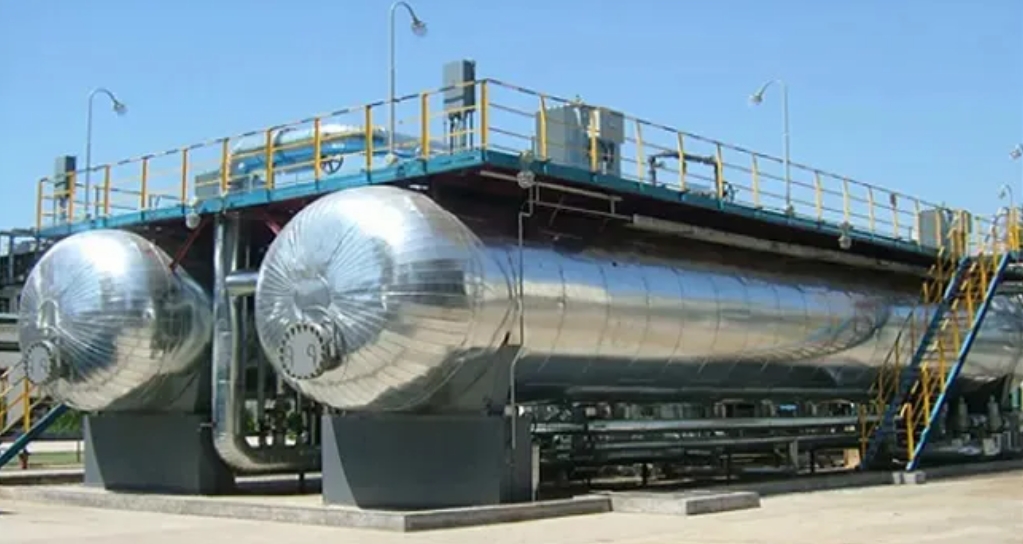Why should crude oil be electrodesalted?
Why should crude oil be electrodesalted?
All kinds of crude oil extracted from the ground contain a considerable amount of water, inorganic salts (NaCL, CaCL2, MgCL2), organic salts and other impurities, which are mostly dissolved in water to form brine. Although the crude oil has been initially desalted and dehydrated in the oil field after being extracted, there is still a certain amount of salt and water in the crude oil transported to the atmospheric and vacuum equipment.

The presence of these salts and water not only affects the smooth operation and energy consumption of the device, but also brings serious harm to equipment corrosion, product quality and production optimization of downstream devices.
Therefore, all oil refining enterprises attach great importance to the desalting operation of crude oil, crude oil desalting has been raised from the original atmospheric and vacuum distillation unit in the process of anticorrosion of one means of four injection to the current crude oil pretreatment process to treat.
Effect of metal salt impurities on crude oil processing
There are only two types of metals in crude oil, one is oil-soluble metal compounds or organic salts, which exist in a dissolved state in crude oil; The other part is water-soluble alkali metal or alkaline earth metal salts, which except a very small number of suspended crystals exist in oil, mainly dissolved in water and exist in the form of emulsion in crude oil, about 90% of sodium salt in crude oil, about 10% of calcium salt and magnesium salt are water-soluble.
1. Increase device energy consumption. The water in the dehydrated crude oil will gasify with the increase of the heating temperature of the crude oil, which will absorb a lot of heat energy and increase the fuel consumption. In addition, after the crude oil passes through the heat exchanger, pipe heating furnace and other equipment, the temperature rises and the water evaporates, and the salt forms salt scale and deposits on the pipe wall, affecting the heat transfer effect.
2. The operation of the device is affected. During the heat transfer process, the water contained in crude oil will gradually vaporize with the increase of temperature, resulting in an increase in management pressure drop, which is easy to cause static seal leakage of pipelines and heat exchange equipment, and affect the long-term operation of the equipment. At the same time, after a large amount of water is vaporized, the gas phase load of the tower is increased, resulting in fluctuations in the operation of the atmospheric and vacuum device, and serious accidents will result in tower flushing.
3. Deteriorates device corrosion. The hydrolysis of inorganic salts (NaCL, CaCL2, MgCL2) in crude oil can produce HCL with corrosive effect, resulting in corrosion of the top equipment of the tower of the atmospheric and vacuum equipment. According to the data, MgCL2 generally begins to hydrolyze at about 120℃. In the presence of naphthenic acid, NaCL also begins to hydrolyze at 300℃. The hydrolysis reaction can be carried out in aqueous solution or completed by its own crystal water. Dry HCL is not corrosive, but it will form hydrochloric acid after encountering water, which has a strong corrosion effect, resulting in the corrosion of the initial distillation tower (flash tower), atmospheric pressure tower and decompression tower top system of the atmospheric pressure tower.
4. Affect the performance of catalyst in downstream devices. Some metal impurities such as nickel, sodium and iron in crude oil are mainly concentrated in the residual oil after passing through the atmosphere and pressure reduction device. After entering the downstream processing device with the residual oil, these metal impurities will affect the performance of the catalyst in the downstream device. For example, metal sodium has a destructive effect on the lattice of the catalytic cracking molecular sieve catalyst, and nickel is deposited on the catalyst carrier to promote the non-selective cracking reaction. The formation of more hydrogen and catalytic carbon, and the salt of iron ions will cause the increase of the pressure drop of hydrogenation catalyst bed.
With the development of technology, the salt content of crude oil has also specified specific requirements, if in the purpose of anti-corrosion, the salt content of desalted crude oil is not more than 5mg/l; In order to protect the catalyst in the secondary processing process, deep desalting is required, and the salt content of the crude oil after desalting is not more than 3mg/l.
